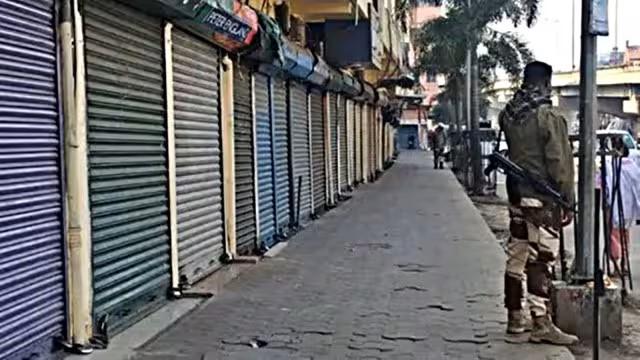A 12-hour bandh called by several indigenous groups in Assam demanding Scheduled Tribe (ST) status for the communities in the state has caused widespread disruptions in Dibrugarh and Tinsukia, two of the state’s key districts. The bandh, which was enforced on a day when the economy and daily activities usually see a surge, has left a visible mark on the daily life of the residents.
The demand for ST status has long been a contentious issue in Assam, and the bandh has brought it to the forefront once again. While some view it as an important step towards securing affirmative action for these communities, others see it as a challenge to Assam’s social fabric. The 12-hour strike, called on a working day, has affected both urban and rural areas, and its impact has been felt in transportation, business activities, and the overall routine of the people.
Background of the Demand
The call for Scheduled Tribe status for indigenous groups in Assam, especially in the Upper Assam region, has been an ongoing issue for years. The communities involved are primarily from the tea garden workers, along with others who have long inhabited the area. These communities, which have their own distinct cultural identity, are seeking recognition under the ST category to ensure better access to education, government jobs, and social welfare schemes that are reserved for STs in India.
While there is support for the move from these communities, there are also counter-arguments. Critics argue that granting ST status might lead to demographic changes and exacerbate the already sensitive ethnic balance in Assam. The debate has sparked protests in various parts of the state, but the 12-hour bandh in Dibrugarh and Tinsukia has drawn significant attention due to the extent of the disruption it caused.
Impact on Daily Life
On the day of the bandh, life in both Dibrugarh and Tinsukia came to a standstill. Shops, markets, and businesses were shut down as the bandh supporters enforced the strike. Local transport was particularly affected, with buses, auto-rickshaws, and trains either halted or diverted to alternative routes. In Dibrugarh, a major transit hub in Upper Assam, the lack of transport disrupted the flow of both local and inter-district travelers. Tinsukia, a district also known for its proximity to the oil industry, saw a reduction in workforce attendance as employees could not travel to their respective workplaces.
Educational institutions were also impacted, with schools and colleges either remaining closed or having minimal attendance. Although the bandh was meant to be peaceful, it caused inconveniences for students and teachers who had to reschedule their activities or miss out on classes.
The economic impact of the bandh was particularly felt in the markets of Dibrugarh and Tinsukia. These towns are home to several tea estates, and the shutdown affected not only the workers but also the traders, suppliers, and small businesses that depend on regular commerce. With markets closed and roads blocked, there was a palpable sense of uncertainty among the residents, many of whom were left stranded or unable to carry out their daily activities.
Political and Social Responses
The bandh has received mixed reactions from the political class and civil society. While leaders of the groups advocating for the ST status expressed support for the strike, citing it as a legitimate way of expressing their grievances, political opponents criticized the bandh for its disruptive impact on everyday life. Local legislators have urged both the state and central governments to look into the demand with urgency, calling for a fair solution to the matter.
The state government has called for dialogue with the protesters to address their concerns but has also taken steps to maintain law and order during the bandh. Police forces were deployed in key areas of Dibrugarh and Tinsukia to prevent any untoward incidents. Despite this, there have been reports of minor clashes between bandh supporters and police forces, although the situation remained largely under control.
Looking Ahead
The 12-hour bandh in Assam’s Dibrugarh and Tinsukia is a stark reminder of the ongoing ethnic and political tensions in the state. While the immediate disruptions caused by the bandh have faded, the underlying issue of Scheduled Tribe status remains unresolved. For many, the bandh is just the beginning of a larger conversation about the rights of indigenous communities in Assam, their recognition in the eyes of the state, and the long-term consequences of such demands.
As the state government prepares for further negotiations with the protesting groups, the people of Assam are left to navigate the aftermath of the bandh, hoping for a resolution that will address their concerns without compromising the state’s peace and unity. The issue of ST status is far from over, and how it unfolds in the coming months will be crucial not only for Assam but for the wider Northeast region.

